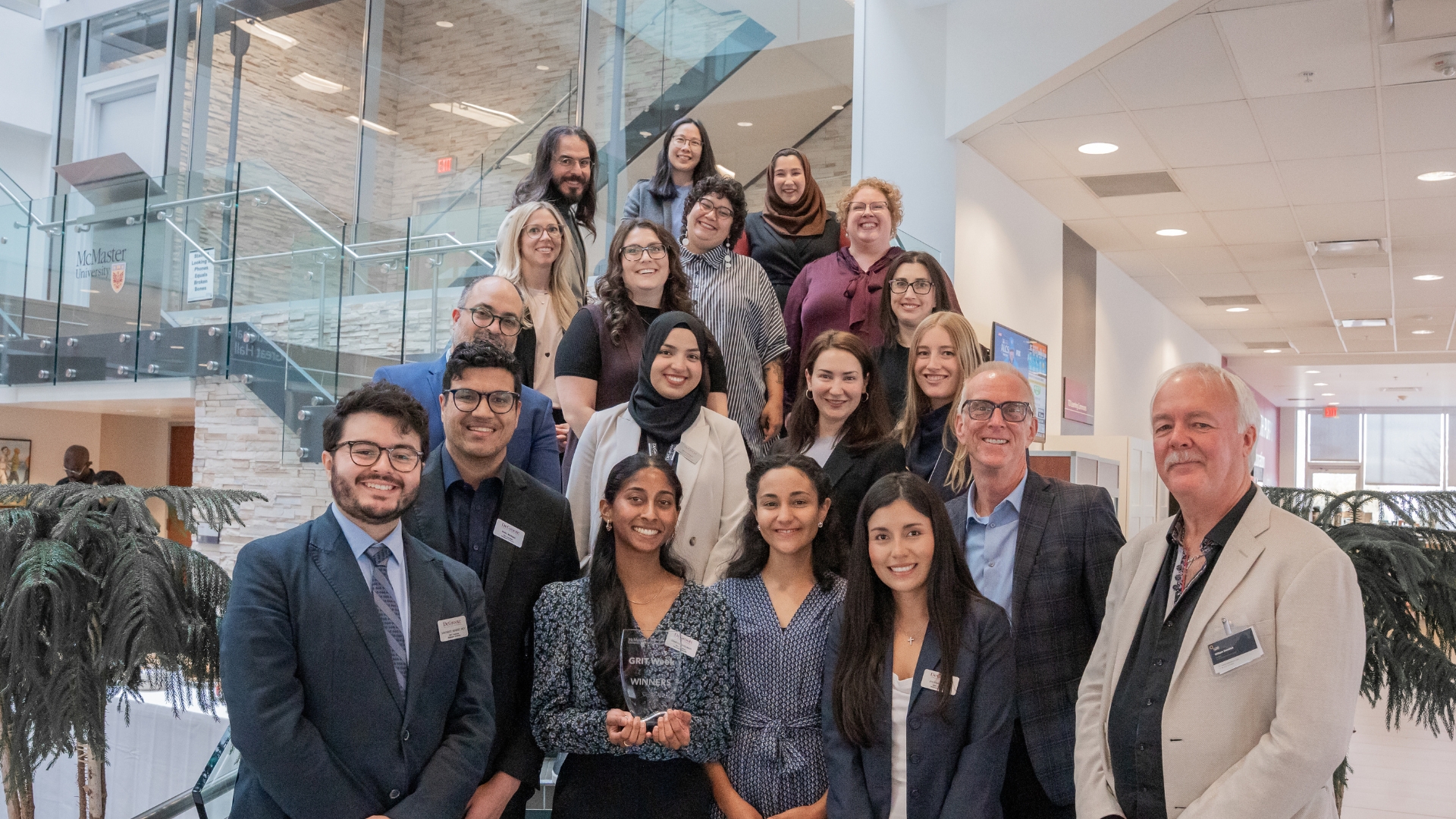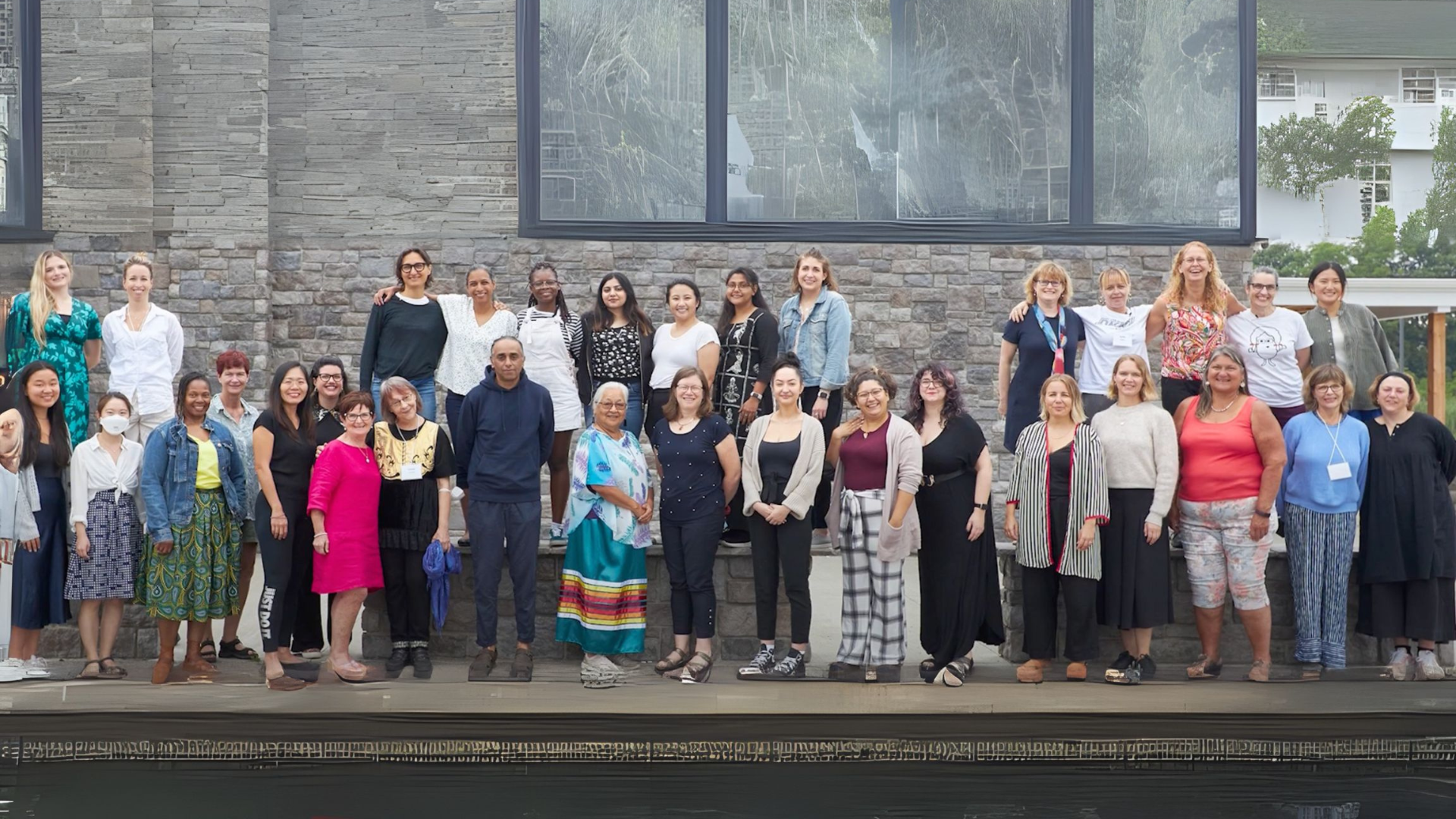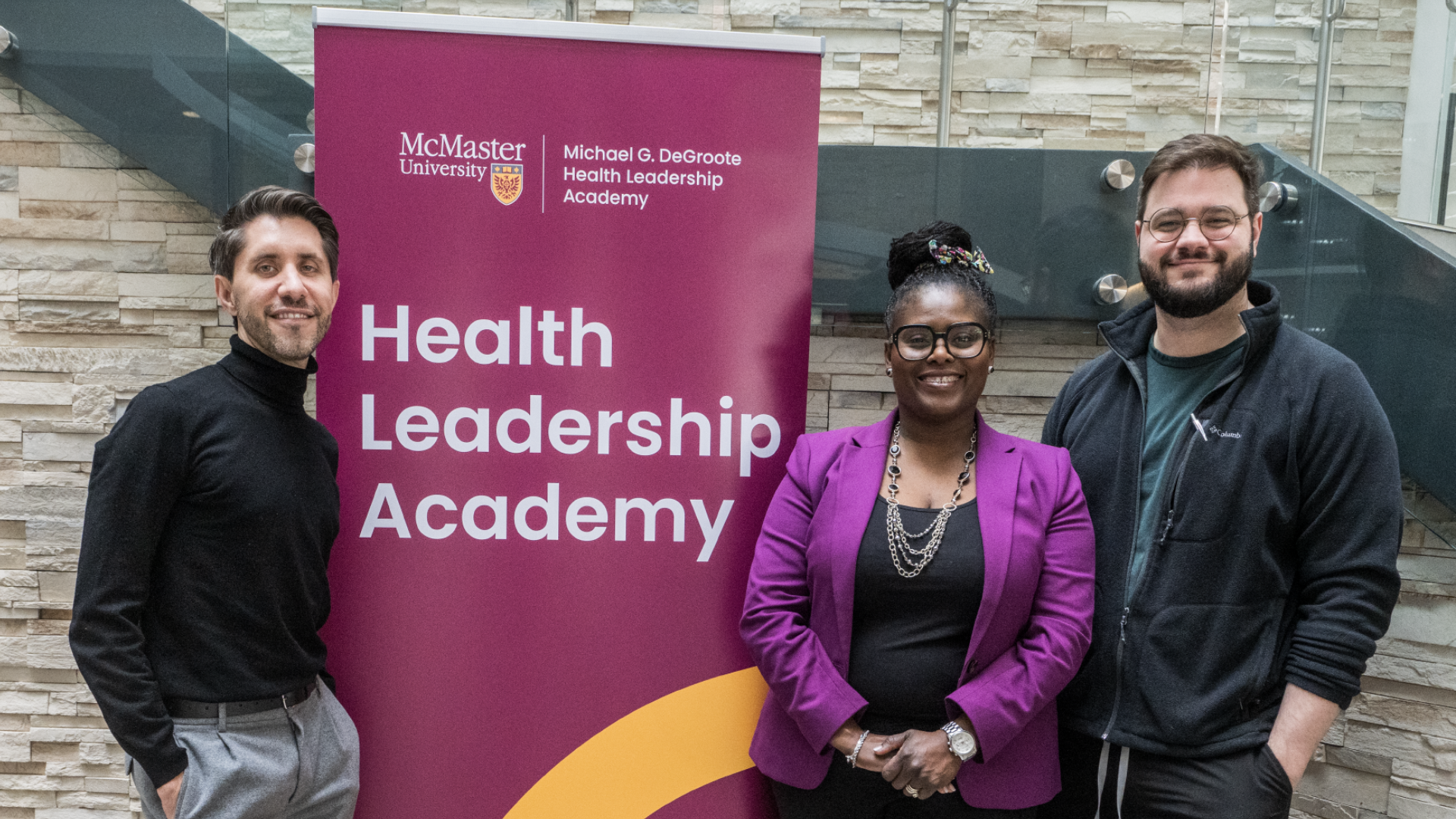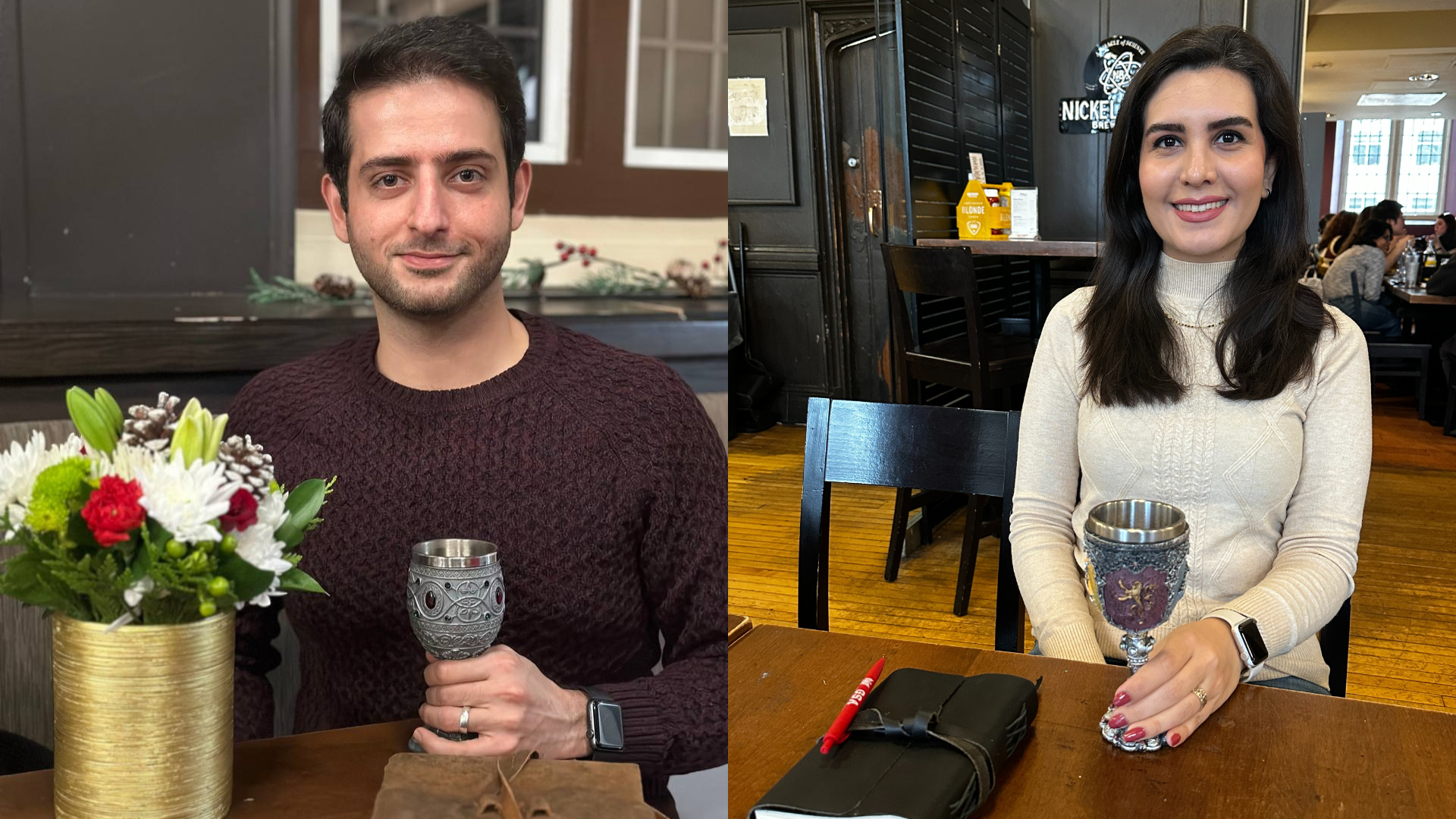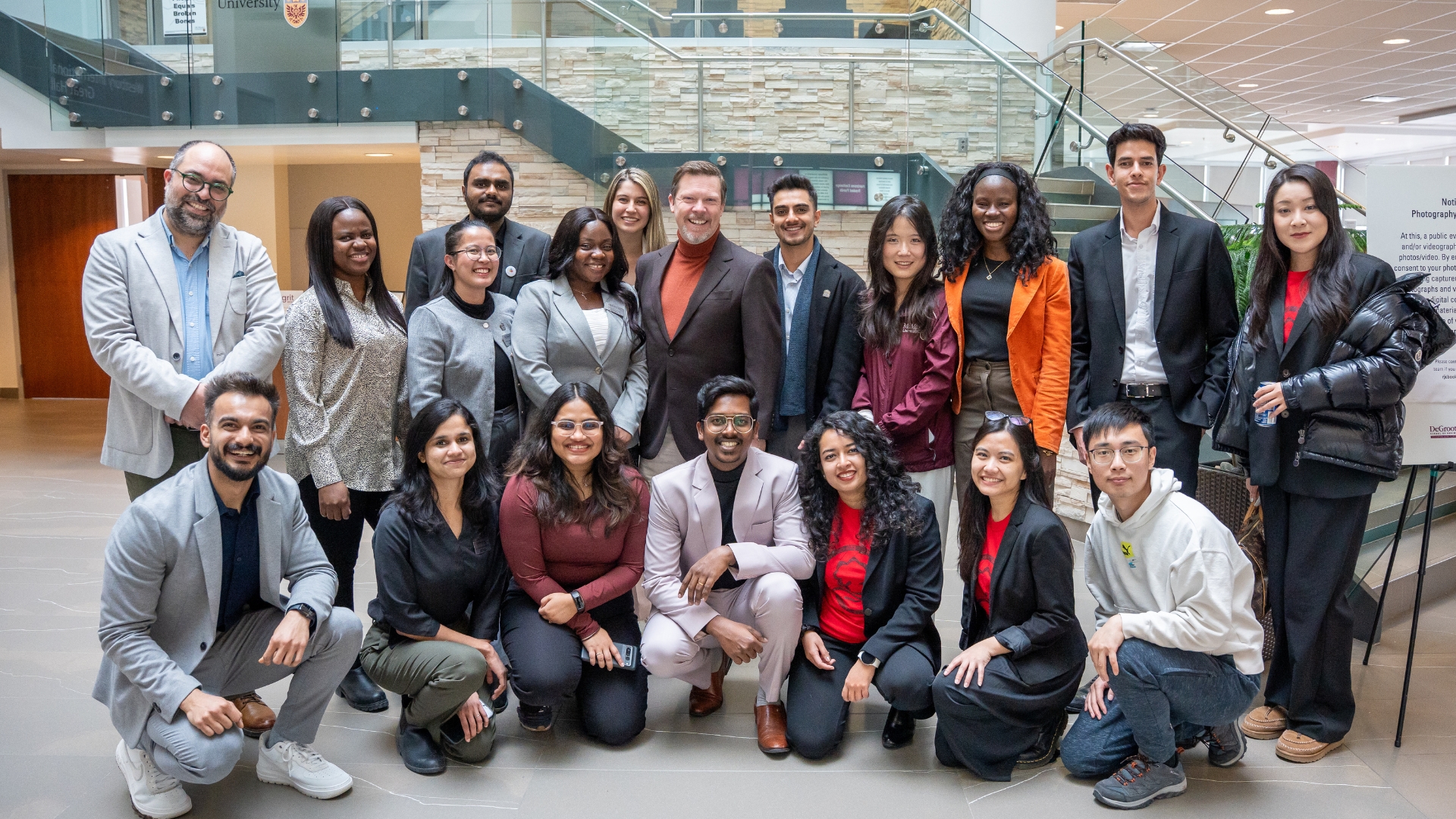ALUMNI STRATEGIC PLAN | ENGAGING COMMUNITIES
People-focused leadership: Insights from Mike Heenan
January 9, 2025 ·
Contributed by: Natalie Plechinger, Communications Assistant
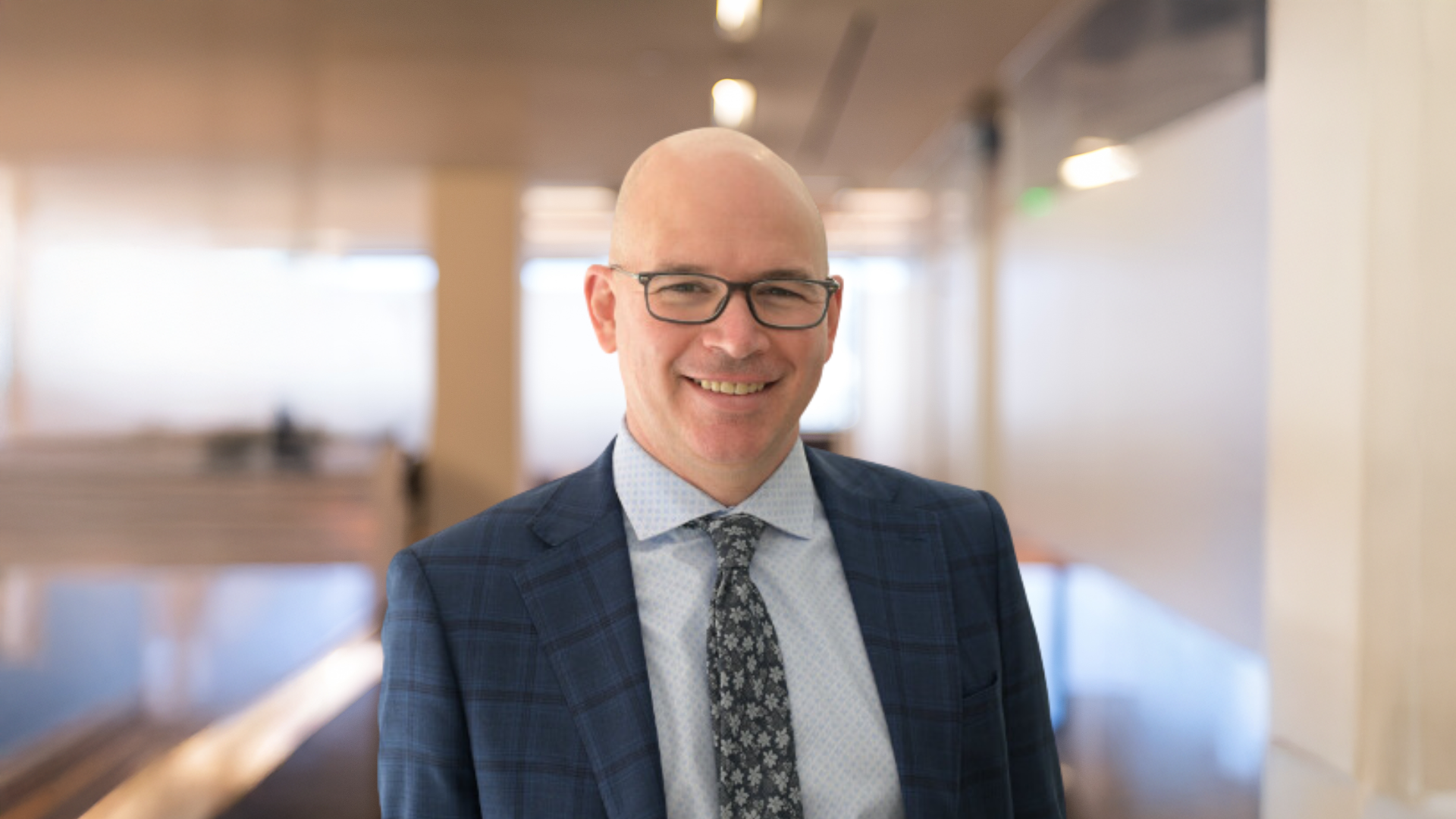
In part one of our discussion with Mike Heenan (BA ‘95, MBA ’08, PhD ’23), president of St. Joseph’s Healthcare Hamilton, he shares his thoughts on the importance of being a people-focused leader who walks the floor, why organizations need good managers, key lessons learned from five great bosses and advice he would give his younger self.
Why is being a leader important to you?
Being a leader is important to me because I get a chance to influence change, and it allows me to really help staff. The number one role of a leader is to take care of their people. Seventy per cent of our budgets in hospital are related to salary. So, if you take care of your people, you can take care of your organization.
How do you define leadership?
Leadership is understanding the operations of your people, setting a vision for the organization that people can coalesce behind, and at the end of the day, delivering results.
That’s why I appreciated going to DeGroote. When I did my PhD, it taught me that there are three things: leaders, managers and administrators. We all want to be leaders, but we need good managers too. So, part of leadership is making sure you have the right management structures and skill sets in place.
We need people who can manage, take an initiative, implement it, measure it, fix it and pivot when they need to. Too often we think that we need more leadership, but we actually need more managers.
I think that’s the DeGroote advantage, it’s not just about leadership, it’s also about management—and that’s an important skill set—especially in my world.
I have nurse managers who didn’t grow up thinking that they would be managers, and now they run units. They have hundreds of staff members, multiple million-dollar budgets and oversee quality, client customer relations and patient concerns. We’re training these leaders to be managers. In my opinion, defining leadership is also understanding management.
What skills or attributes do you feel are most important in a business leader?
To be a business leader, you need to understand operations. I think often young MBA students come in and want to do strategy. We think it’s all about this great vision, strategy and measurement. But you can’t do that unless you truly understand how the frontline works.
How are things on the shop floor? How are things in your operating room? How are things in the emergency department? You can’t create strategy unless you understand the day-to-day work of your frontline staff and customer, which in our case is a patient.
How do you go about learning more about the day-to-day experiences of your frontline?
If you are in a service delivery model, you need to be at work and talk to people. I do that in a couple of ways. One is informally. I pop down to the clinical units like the emergency department and just talk to people, whether it’s asking the frontline staff: What can we do today? Or by talking to patients. For example, I walked a patient to diagnostic imaging the other day and he was able to tell me about the good and challenging parts of his experience.
The second way is doing formal rounds. In my first year as president, I spent every Friday on at least two units, meeting with staff and asking them: What systems and processes do they want to fix? What tools or equipment and training do they need to do their job? What anxieties do they have in coming to work that as leaders we can address?
I think as the president of the organization my work is done by walking the shop floor.
What is the most important lesson you have learned in your career?
I had a leader once say to me, “As long as you make an ethical decision, if you fail, people will continue to follow and support.”
It’s the greatest lesson I ever learned.
You make an ethical decision, and if it ends up not working out, that’s okay, because it was based on values.
That is the most important lesson I have learned; if you approach things with an ethical lens and you make the wrong mistake, people will know you made it based on values and will not walk away from that leader.
What advice would you give to your younger self?
To be patient and not think you have to be an executive and run the world in your 30s.
I was one of those people who thought that I needed to be a director. I needed to be a vice president. I needed to be the president. But I had some bumps along the way. I really struggled at being a vice president at age 39. If it wasn’t for that leader who talked to me about leading with ethics, and who supported me through a couple of bumpy years, I don’t know where I would be. You need to be patient and realize that there are very few people who can be the president and CEO of an entity in their 30s. World experience matters.
I’m glad I ended up in this chair in my early 50s, because I had the lessons I learned through my 40s. I got to the executive table in my 30s but I stumbled, therefore I got good mentorship advice.
I think young business professionals want to rush to contribute, but they don’t have all the experience yet to sit in that chair. My greatest piece of advice is to be patient and don’t rush to failure. So, I say to young leaders today, just slow down…you have another 30 years ahead of you.
Who inspires you?
I have had five great bosses in my career.
- Dr. Kevin Smith, from University Health Network (UHN), taught me that to be a leader, you need to have followers, engage people in your line of thinking and in what your change is and ask for advice.
- Michelle Di Emanuele, who was the president of Trillium Health Partners, and now is Ontario’s Secretary of the Cabinet, taught me that you need to execute—you actually need to show that you get things done. You just can’t talk and hope it gets delegated down.
- Elizabeth Buller, former president of St. Joseph’s Health Centre in Toronto, told me to lead with ethics. Make an ethical decision and people will continue to support you in your career.
- Helen Angus, former Deputy Minister of Health, supported me at a time of stress. By doing so she taught me if you believe in a person, give them an opportunity to succeed.
- Barb Collins, president of Humber River Health, taught me that at the end of the day, you run an operation, you run a hospital. You need to concentrate on operations and understand that frontline perspective. You need to go and deal with the little problems. You are the one who has to speak to the microphone in a publicly-funded healthcare system so you need to understand those risks, and you cannot just delegate risk management downwards.
Do you have any advice for current students?
Pick your boss, not the organization. Who are you going to work for? What are their values? What are they going to teach you? How will they support you?
I have been blessed with those five great leaders who helped me do that.
In part two of our interview, Mike will discuss the catalysts for his work in the healthcare system, disruptive forces that have impacted the industry and changes that are influencing the future practices of care.


